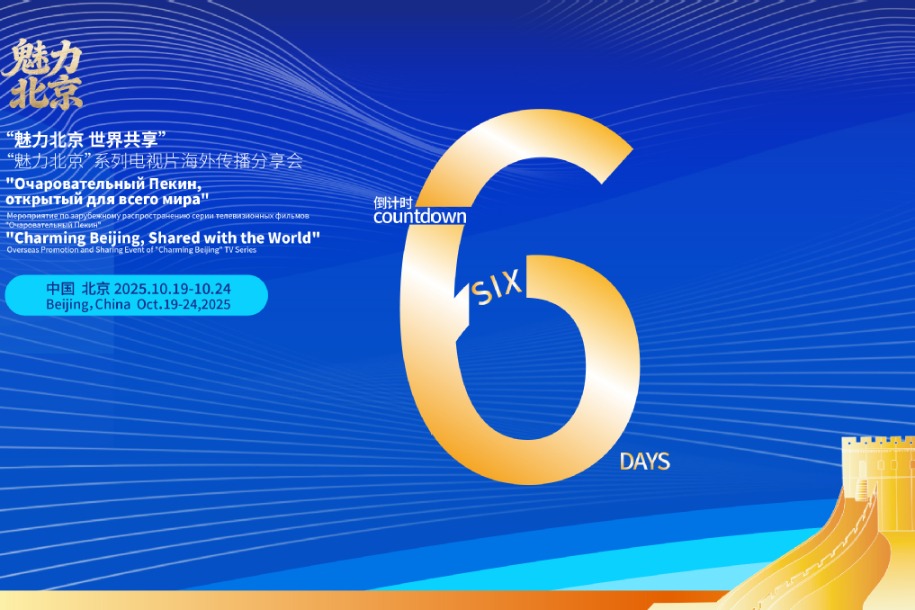Labels and language stoke Britain's 'small boats' debate, obscuring reality
By JULIAN SHEA in London | China Daily Global | Updated: 2025-01-03 09:15

In November 2023, the British newspaper Sunday Express featured a front-page headline about a message reportedly being sent by Conservative members of Parliament — who knew a general election was coming — to then-prime minister Rishi Sunak: "Stop Small Boats or We're Sunk".
The warning underscored growing frustration within the ruling party as Sunak, who had pledged to curb small boat crossings in the English Channel since becoming leader in October 2022, struggled to deliver results.
By mid-2024, the failure to address the issue contributed to the Conservative Party's defeat in July's general election, which ushered the Labour Party into power with the responsibility of tackling the United Kingdom's immigration challenge.
A 2023 study by Durham University in England found that Brexit was a major factor behind the surge in small boat crossings. With Britain no longer part of the European Union, it lost the mechanisms to return asylum-seekers arriving from mainland Europe.
According to the House of Commons research library, these crossings grew exponentially, from 299 people in 2018 — when they were first detected — to 45,774 in 2022. Last year, 36,816 people were detected in the channel, a 25 percent increase from the 29,437 who arrived in 2023, provisional figures from the Interior Ministry showed on Wednesday.
The lack of return facility means many people are now willing to take greater risks to cross the channel — often with tragic consequences.
By Oct 9, the International Organization for Migration confirmed that 2024 had become the deadliest year for channel crossings, with 52 fatalities. By early December, the figure had passed 70.
The circumstances in which people attempt crossings are becoming more desperate, with the British Home Office reporting that the average number of people per boat had risen from 10 in 2019 to 53 in 2024.According to a German investigator cited by The Guardian newspaper, human trafficking has become more lucrative than drug smuggling.
The Conservative Party's "Stop the Boats" slogan has been ditched in favor of Labour's "Smash the Gangs "approach, with a Home Office spokesperson vowing to "dismantle (smuggling gangs') business models and bring them to justice".
The new, more open approach to cooperation with European law enforcement does seem to be producing results. In December, a joint operation involving British, French and German police deployed more than 500 officers in raids across France and Germany, targeting people who are believed to have been arranging small boat crossings.
In the summer, just weeks after Labour's election victory, the volatile nature of migration as a political issue was laid bare. Following the killing of three children, misinformation spread on social media falsely identified the suspect — a Wales-born individual whose trial is set for this month — as a migrant.
The false claims fueled riots across the UK, with hotels housing migrants becoming frequent targets.
"There was a clear connection between online activity and violent disorder seen on UK streets," said Melanie Dawes, chief executive of media regulator Ofcom.
This incident highlighted the importance of responsible language in migration discussions and the danger of oversimplified slogans and headlines that obscure key details.
James Hampshire, a professor of politics at the University of Sussex and deputy editor of the Journal of Ethnic and Migration Studies, said the issue of small boats has been inflated out of all proportion.
"I'd try to de-emphasize the small boat arrivals, because it's only a very small part of the immigration picture.
"Most people who come here come on work visas or study visas. Maybe the focus of the immigration debate should be on why our economy and education sector are so reliant on people coming from outside.
"But it's perceived that people want to hear a simple message, and it's hard to think of politicians of any persuasion who will go beyond simple sloganeering," he said.
Helena Wray, a professor of migration law at the University of Exeter, backed up his point.
"Of course the small boats are a terrible concern because they're putting people at such risk, but in fact they only account for around 3 or 4 percent of the migrants who come into the UK," she said.
"There has been a raising of the tone as if it is a major immigration crisis, and it's not. It's a small number of people from (other) countries who have understandable reasons for wanting to come here, and I have sympathy with the government having to address such a heated issue when you have people presenting such simplistic answers and screaming headlines."
Ciara Devlin, chief executive of Breaking Barriers, a charity that helps migrants into meaningful employment, said the summer riots showed the danger of the labels and language.
"We need to change the narrative and make people understand that this group of people known as 'refugees' are not a homogenous mass, they are individuals with stories and talents, but people have the perception of what the media are feeding them," she said.
"In this era of misinformation, it's a huge challenge but it's up to organizations like ours to tell their stories."
Trying to change the situation should be a top political priority, Devlin said, but she acknowledged that "it takes a brave politician to try and address it" as it is not a vote-winning issue.
Wray said Britain is only "midway "in Europe when it comes to the number of asylum claims it receives, but the absence of safe routes meant desperate people would take desperate measures — previously, on foot through the Channel Tunnel or on lorries, and now, increasingly, in boats.
"I don't think there is an answer apart from to acknowledge that all prosperous countries receive asylum claims," she said. "We live in an unstable world where people try to flee danger."
That instability is unlikely to end any time soon, but even in the darkest days, Devlin said, flickers of hope, if not exactly reasons for optimism, do exist.
"After those horrendous riots, we had so many people come to us, saying, 'I feel helpless, tell me what I can do,'" she said. "These people like that are out there, but they don't make the news. There's so much going on behind the scenes that most people don't know about, but I feel privileged to be in the position I am, because I do see it, and it's uplifting."
























